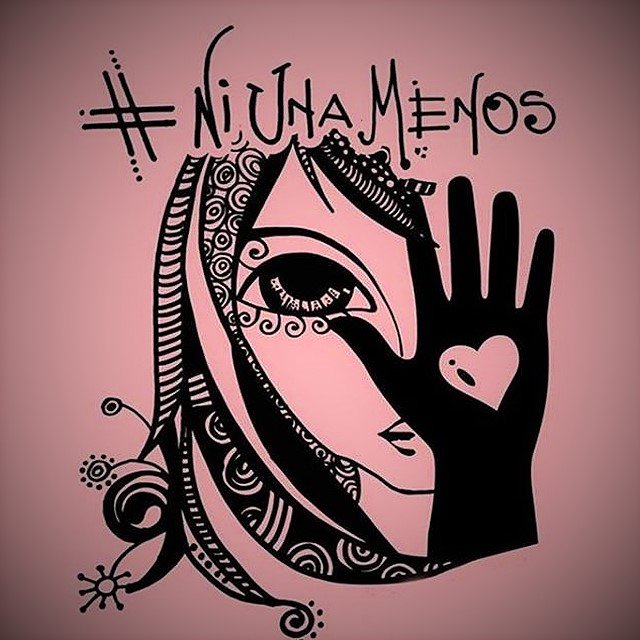For the past two years, women in Argentina, and elsewhere, have been organizing and mobilizing to end violence against women, gathering under the banner, Ni Una Menos. Not One Woman Less. Today, Wednesday, October 19, 2016, they are organizing a general strike to address and end violence against women, from sexual to cultural to economic violence. The torture and murder of Lucía Pérez is the most recent spark, but the flame has been ongoing and growing. In the streets, alleys, and rooms of Argentina, women dressed in black have declared today is Black Wednesday, #MiércolesNegro: “In your office, school, hospital, law court, newsroom, shop, factory, or wherever you are working, stop for an hour to demand ‘no more machista violence’.” As Ingrid Beck of Ni Una Menos explained, “We’re calling it Black Wednesday because we’re in mourning for all of the dead women, all of the women killed simply for being women.”
Florencia Minici, also of Ni Una Menos, added, “With our rage at the femicide of Lucía in Mar del Plata, at the hatred of the mother who murdered her lesbian daughter, at the stabbing of teenagers in La Boca and with our anger at the repression of the National Congress of Women in Rosario, we call on everyone to come out from our workplaces and our homes … to make visible the femicide and the precarization of women’s lives.”
A communiqué from Ni Una Menos further noted, “Behind the rise and viciousness of the femicidal violence lies an economic plot. The lack of women’s autonomy leaves us more unprotected when we say no and so leaves us as easy targets for trafficking networks or as `cheap’ bodies for both the drug and the retail markets … While the average unemployment in Argentina is 9.3 percent, for women it is 10.5.”
The women of Argentina know and are signaling that violence against women is part of the current government’s neoliberal economic structural adjustment `development’ program. Leaving women without a say is as vulnerable to economic exploitation as to physical violence. Both are part of a political economic program of spectacular death for women. That’s why today’s mobilization is called a work stoppage and is thought of as a general strike, “the first national women’s strike in the country’s history.”
Two weeks ago, on October 4, the women of Poland, dressed in Black, filled the streets. Today, October 19, the women of Argentina are doing the same. For women around the world, Black is the new Black.
#NiUnaMenos #VivasLasQueremos #MiercolesNegro

(Image Credit 1: Le Monde) (Image Credit 2: Twitter / @NiUnaMenos)
